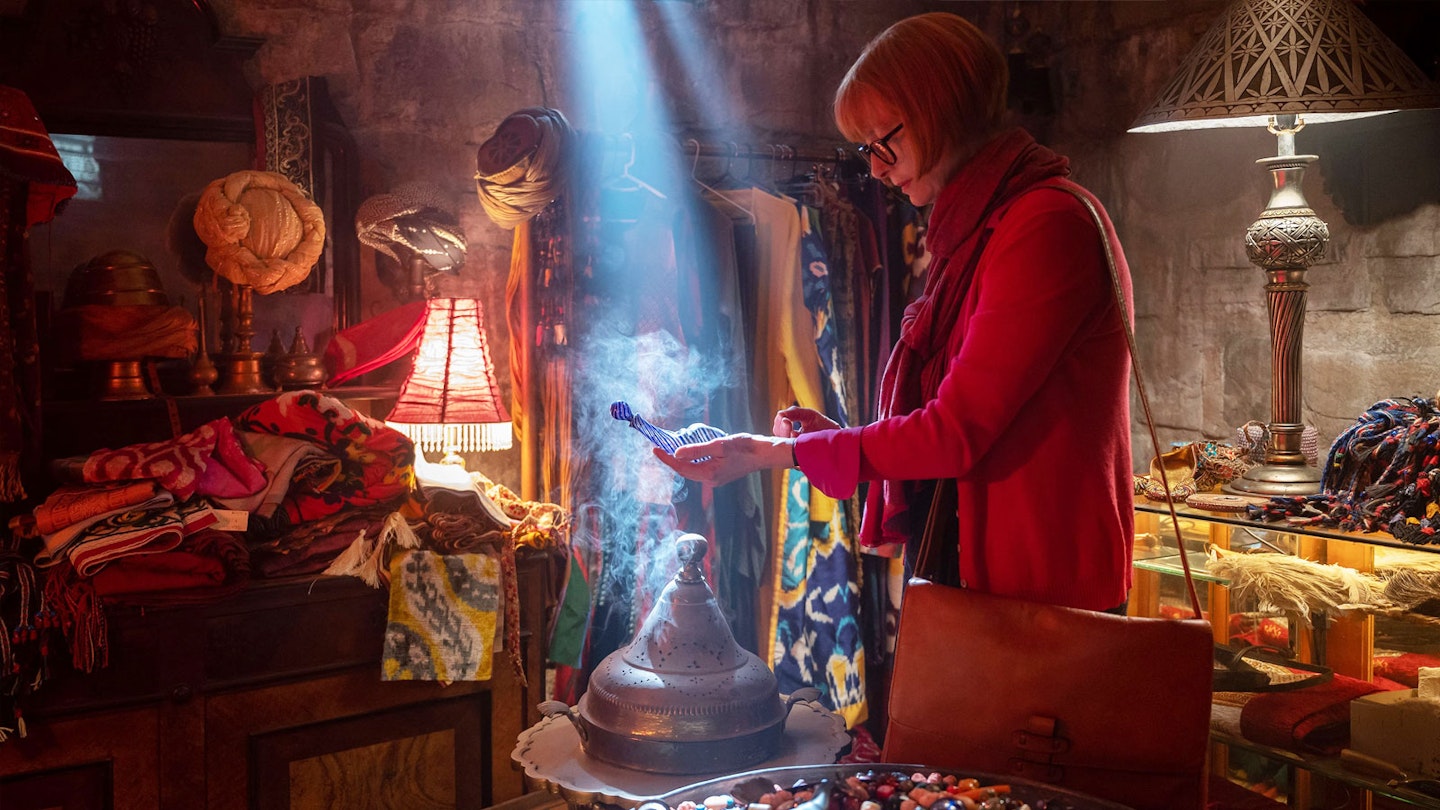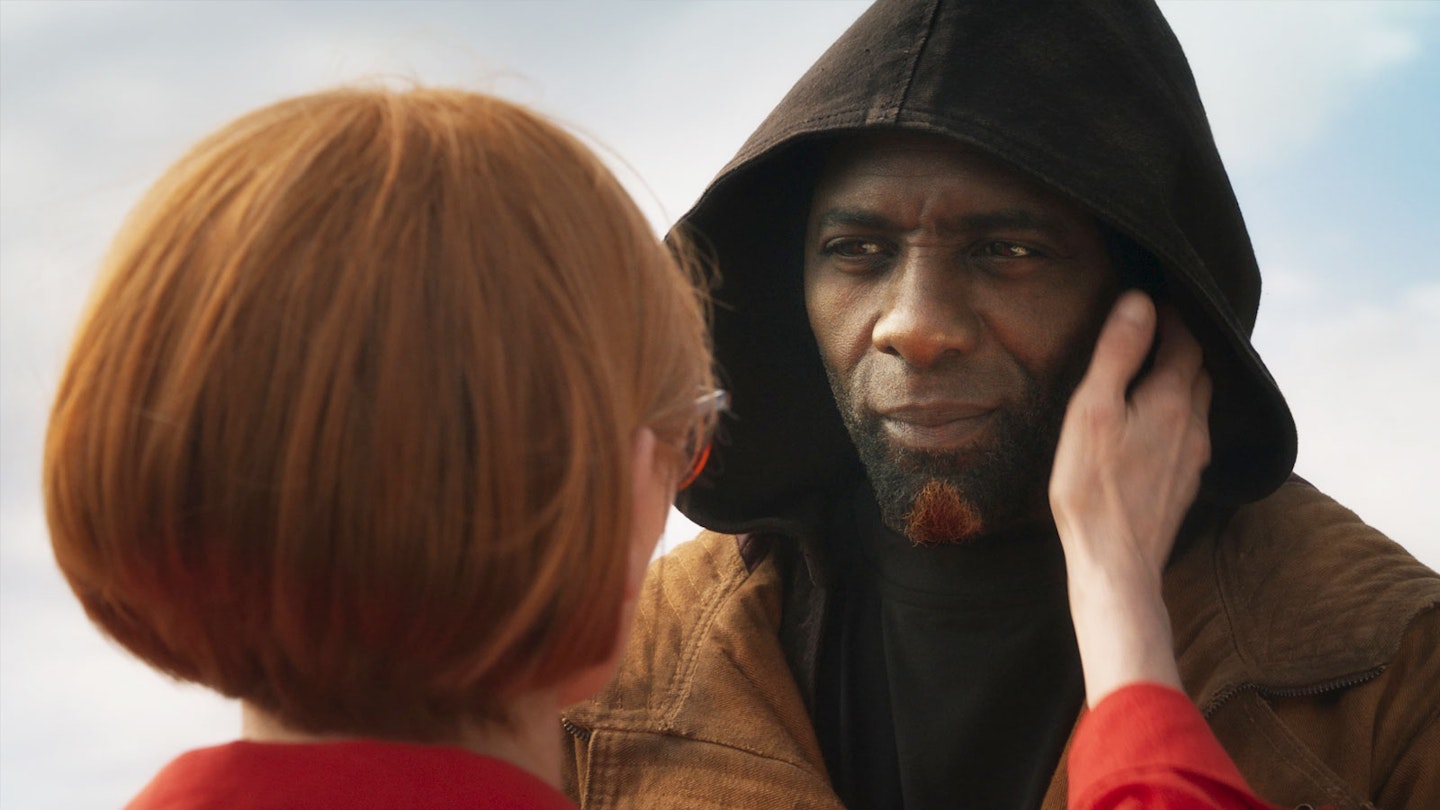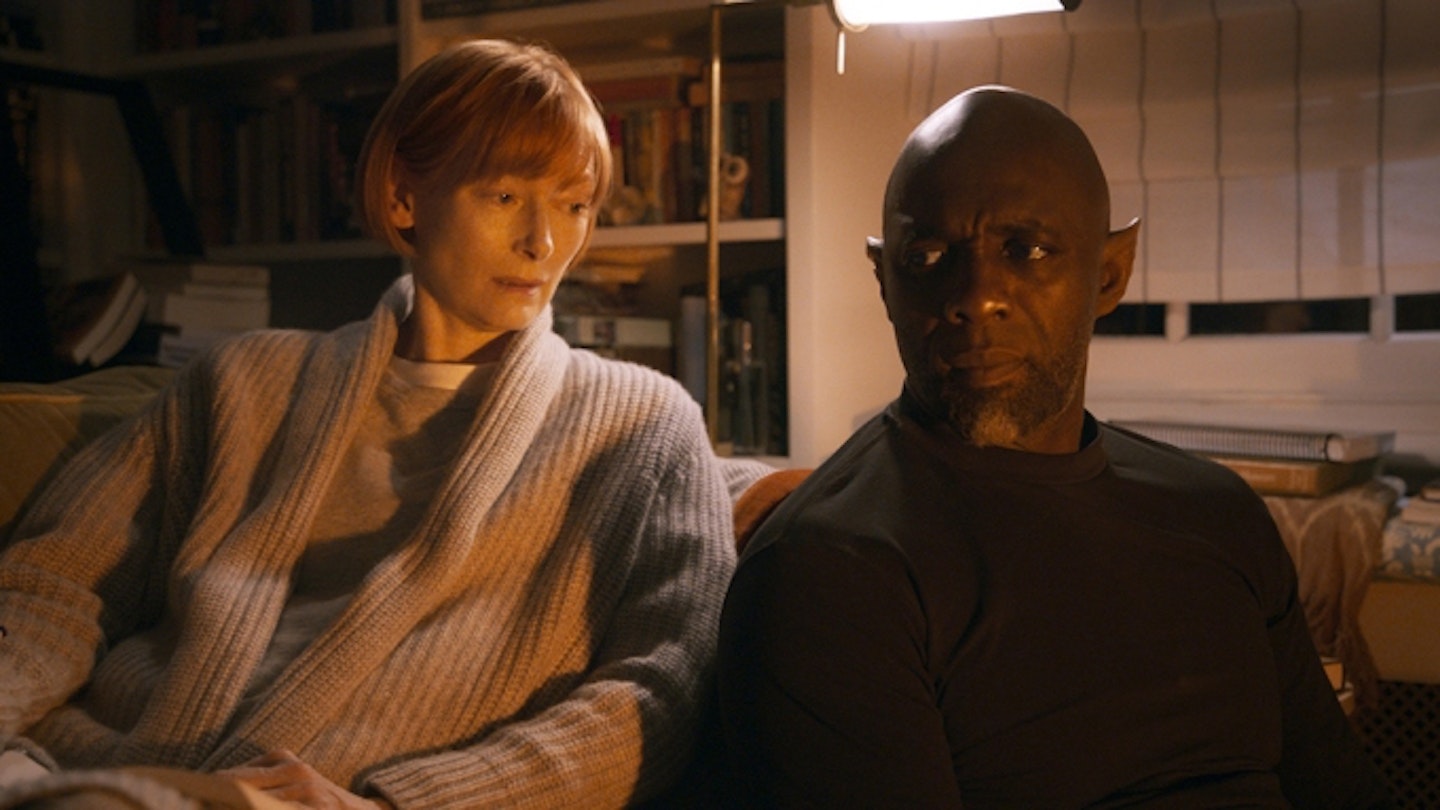Whether he’s spinning a tale of all-female rebellion in Mad Max: Fury Road, or drawing a prized porker into an urban animal underworld in Babe: Pig In The City, George Miller’s narratives often reveal themselves to be something unexpected, under the veneer of something familiar. In Three Thousand Years Of Longing, the filmmaker’s storytelling sensibilities are given a sprawling, colourful canvas upon which to weave an eccentric love story of epic proportions. It’s a film that wears its heart on its sleeve; a love letter to storytelling, itself based on a short story by the Booker Prize-winning novelist A.S. Byatt. Told in the present day, it pivots between Tilda Swinton’s narratology-loving narrator and Idris Elba’s immortal, pointy-eared Djinn. She reflects on her experience of him; he recounts stories from his life in servitude.

Their paths align when Alithea (Swinton) — a solitary personality whose husband left her for another woman — picks out a blue-and-white glass bottle, in which the Djinn is captured, during her visit to Turkey. An electric-toothbrush-powered deep-clean of the artefact unleashes his giant form into her hotel room, after which Alithea’s guardedness, paired with her knowledge of fantastical beings and their ability to deceive, provokes the Djinn to open up, in the hope that he will eventually convince her to grant him freedom.
Elba deploys both charm and vulnerability in droves as the Djinn.
Each subsequent segment is a contained, opulent fairy tale: the Djinn having his heart stomped on by the Queen of Sheba after Solomon arrives on the scene; scheming sultans and concubines in the Ottoman era; a beguiling, enslaved bride in the 19th century who craves endless knowledge while shackled to her marriage. In each chapter, the Djinn can’t resist going beyond his duties, as desire or desperation (or both) inevitably lead him back into captivity. Back in the present day, the situation with Alithea proves harder to read, as her untrusting nature keeps him at arm’s length.

Swinton, ever the chameleon, leans into the dress-up-box aspect of her character, conveying a primness and wariness from under her sharp, ginger bob while deploying a Northern twang which may feel familiar to those who have seen her as the samurai-sword-wielding Scot in The Dead Don’t Die or her dystopian, bespectacled second-in-command in Snowpiercer. Elba, meanwhile, deploys both charm and vulnerability in droves as the Djinn. It’s a great role for him, seeing him move into refreshing new terrain as a wounded soul whose hope in humanity, although bashed, remains endlessly intact. As an actor whose masculinity is often mined for action or comedy (or Macavity in Cats, which exists in a category all of its own), it’s enjoyable to see him play the romantic lead with a silkier, more slowed-down temperament than what he’s used to bringing to the screen, even if the chemistry between the two leads is sometimes smothered by the theatricality of Swinton’s character.
The film is, admittedly, sometimes hampered by its visual effects. The Djinn’s stories are filled with intricate, green-screen-generated set-pieces made up of jewel-bright palettes and CG vistas of faraway lands. With Mad Max: Fury Road’s cinematographer, John Seale, behind the camera, these sequences sometimes fall on the wrong side of excessive; your mileage may vary on whether that oversaturated approach will improve upon, or distract from, Elba’s narration.
Yet Miller’s imagination keeps Three Thousand Years Of Longing engaging. It’s a relentlessly kinetic film that zips between millennia with boundless eccentricity and verve. In the Djinn’s world, there are men who explode into waves of spiders, musical instruments that turn into living organisms as they’re played, and an ensemble of concubines languishing against the plush interiors of a Turkish palace. It may not always translate into the kind of visual masterpiece that Fury Road became, but it’s a spectacle nonetheless, one with idiosyncratic appeal and undeniable ambition.

